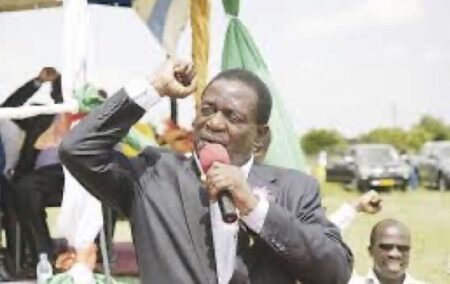South Africa should condemn ‘in the strongest terms’ the passage through the Zimbabwean parliament of the ‘Patriotic Act’, an oppressive law that criminalises citizens who ‘wilfully damage the sovereignty and national interest’ of the country.
So says the Free Speech Union of South Africa (FSU SA), which warns that the terms of allegedly unlawful behaviour in the new law ‘are wide and clearly intended to close down the space for free speech’.
In a statement, the FSU SA notes that the Amendment Bill, which was passed on Wednesday 31 May, amends the Criminal Law (Codification and Reform) Act, ‘criminalising the freedoms of association, assembly, and speech of any citizen who holds meetings with foreign governments through diplomats and other representatives’.
‘It also prohibits communication with foreign government officials when that information may “harm the country’s positive image and integrity or reputation”.’
‘People are barred from issuing statements ‘deemed unpatriotic’, attending meetings inside and outside Zimbabwe aimed at overthrowing the government; or from lobbying for economic sanctions and trade boycotts.’
The legislation provides for sentences of up to 20 years, depending on the severity of the crime. Anyone planning an armed intervention would be sentenced to life imprisonment.
The FSU SA says: ‘This latter provision is ironic given that President Emmerson Mnangagwa came to power through a coup d’êtat.’
The organization points out that critics have described the bill as one of the most oppressive laws yet to be passed in the country.
Citizens Coalition for Change (CCC) legislator Joana Mamombe said: ‘The bill seeks to undermine the fundamental principles of freedom of association and assembly, and threatens to stifle free speech. This is a dark chapter in our nation and political forum.’
Zimbabwe Lawyers for Human Rights (ZLHR) said the bill’s provisions were ‘vague, lack certainty, are imprecise, and are thus prone to abuse by law enforcement’.
‘The bill does not define “sovereignty” and “national interest”, which could be interpreted broadly and subjectively to criminalise the legitimate conduct of those asserting their freedom of expression.’
The ZLHR is concerned that citizens will be penalised for merely attending a meeting where sanctions are considered, whether the sanctions target any individual or official or class of individuals.
‘The vague criminalisation of meetings between Zimbabwean citizens and foreign governments violates human rights to freedom of assembly, association and expression guaranteed in the constitution. Zimbabwe has also voluntarily agreed to be bound by numerous United Nations and AU human rights instruments providing these rights.’
Human rights lawyer Siphosami Malunga questioned the definition of ‘patriotism’, saying criticising the government could be a patriotic act, ‘borne (sic) out of love for the country’.
President Mnangagwa has reduced the country to an even more parlous state than his predecessor Robert Mugabe. It is unsurprising that a further diminution in citizens’ rights ahead of its general election in August has been enacted.
This year alone, Jacob Ngarivhume, leader of the opposition Transform Zimbabwe, was sentenced to four years in prison on public violence incitement charges stemming from a July 2020 tweet in which he called for a national shutdown protest. Opposition lawmaker Job Sikhala, who was held in a maximum-security prison for more than a year, was in May convicted of obstructing justice.
The FSU SA says: ‘This legislation deserves to be condemned in the strongest terms by our government’.

